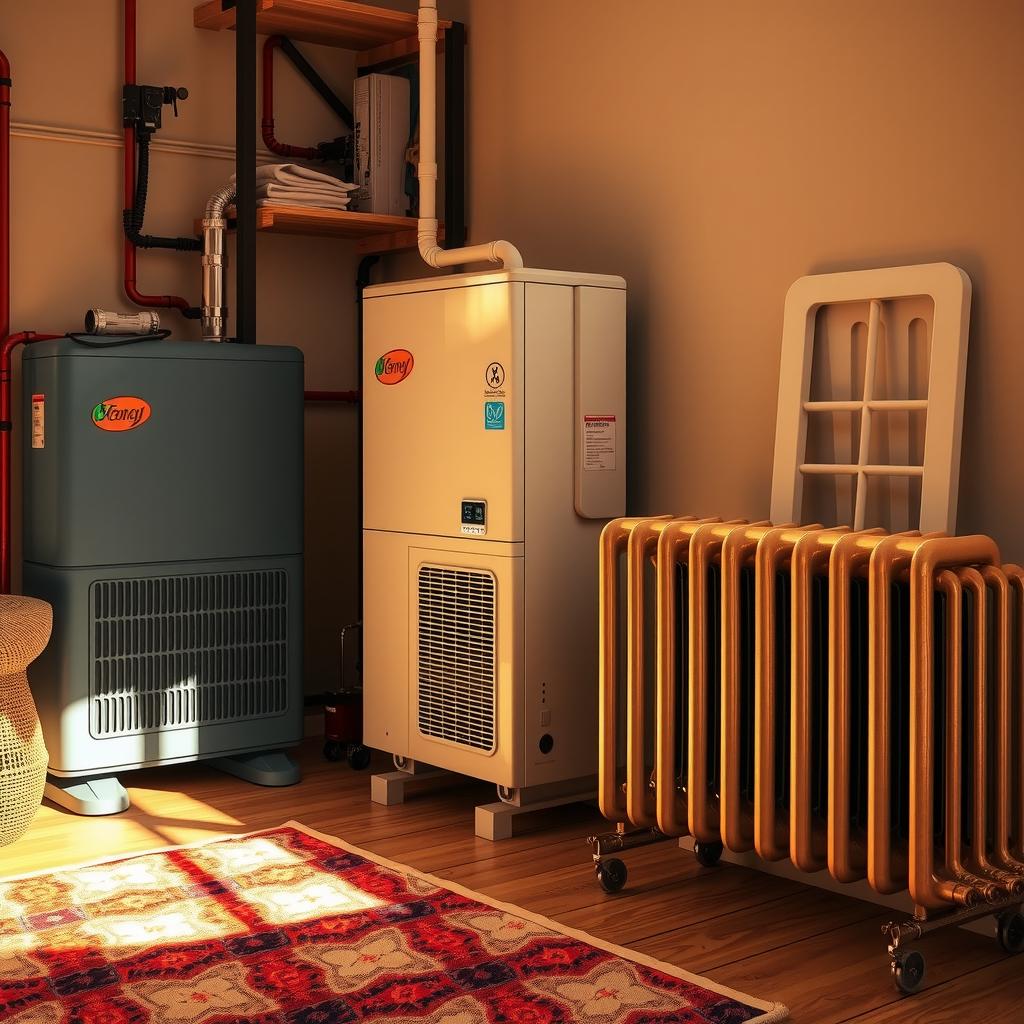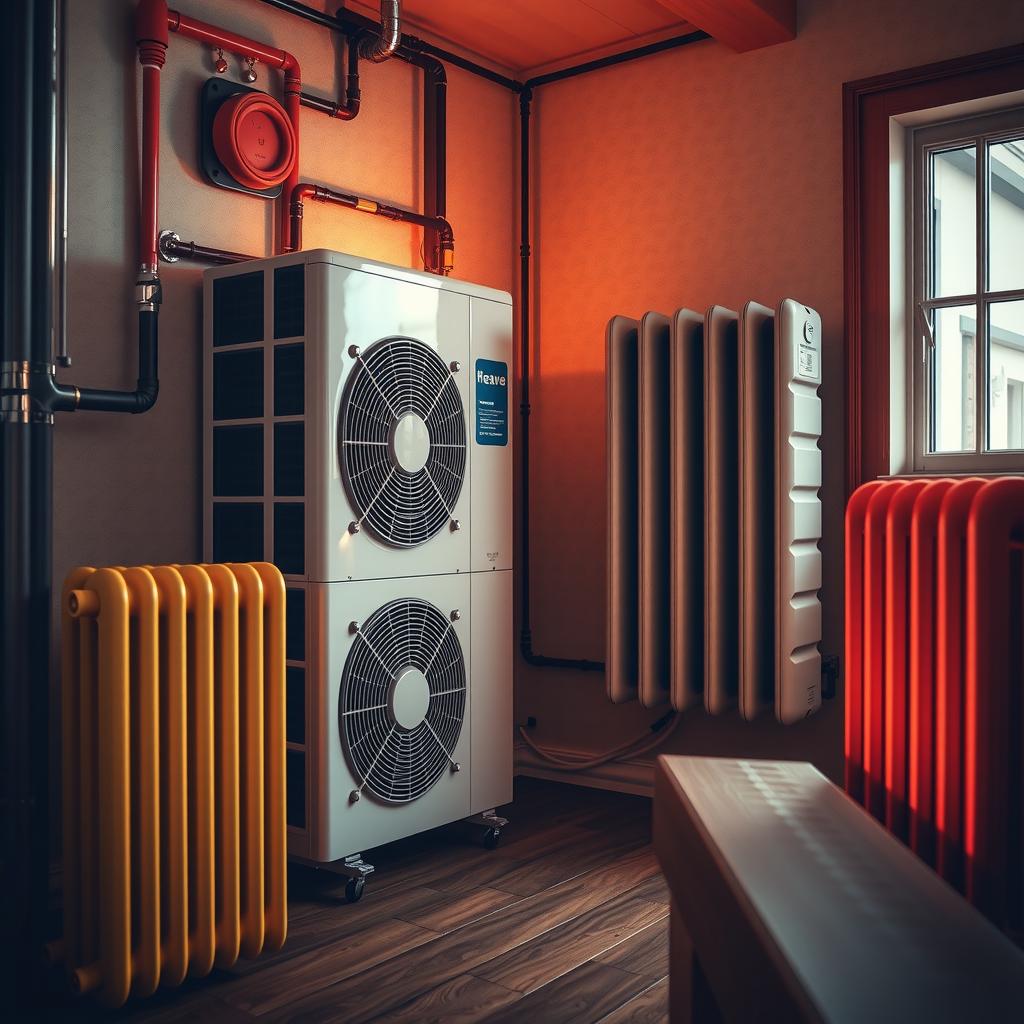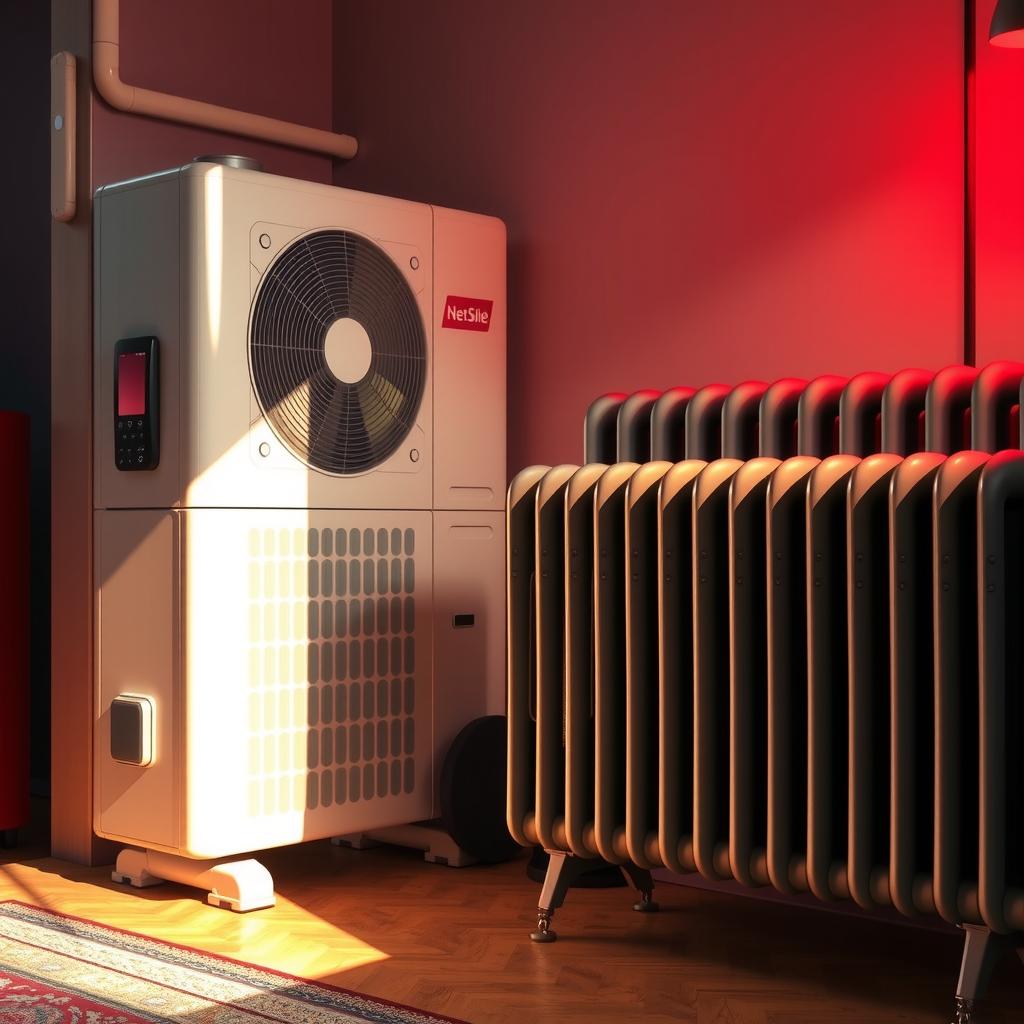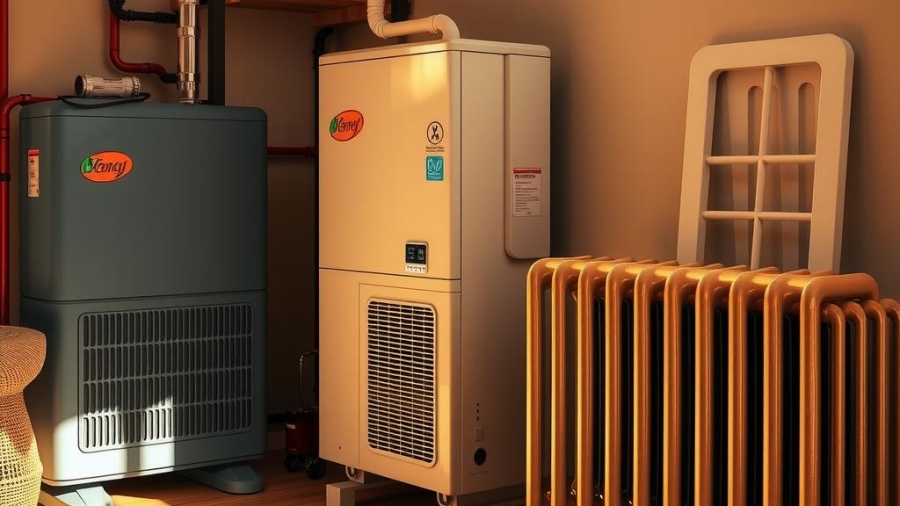As energy costs continue to rise, homeowners are increasingly faced with the dilemma of choosing the most effective heating solution for their homes. With traditional heating systems under scrutiny for their efficiency and escalating expenses, many are turning their attention to alternatives like the heat pump. But how do these two options stack up in terms of cost? Understanding the financial implications can be a daunting task, especially when making decisions that will impact both comfort and budget over time.
In this comprehensive cost analysis, we delve into the nuances between heat pumps and traditional heating methods. The core value of this article lies not just in comparing upfront installation costs but also in evaluating long-term energy savings and maintenance expenses associated with each system. By examining factors such as energy efficiency ratings, potential return on investment, and operational longevity, readers can gain clarity on which option may prove more beneficial for them in home heating scenarios.
The transition from conventional systems to modern solutions like the heat pump is not merely a trend; it’s becoming essential as households seek sustainable ways to manage climate control while minimizing environmental footprints. Moreover, with advancements in technology leading to improved performance metrics for heat pumps, it raises an important question: Can switching from traditional heating lead to significant reductions in overall heating costs?
This article will reveal insights into how these two types of systems compare regarding efficiency—both energetically and financially—as well as what homeowners should consider before making a switch. By exploring real-world examples and expert opinions alongside hard data on installation costs versus ongoing utility bills, readers will be equipped with valuable knowledge that empowers informed decision-making about their future home heating solutions.
Ultimately, whether one leans towards a familiar yet costly traditional method or embraces an innovative approach through the use of a heat pump, understanding these dynamics is crucial. As they navigate through this analysis—armed with facts—they can better envision how practical changes today could shape substantial benefits tomorrow.

Key points:
-
Title of the key point: Initial Installation Costs
The initial installation costs associated with heating systems can greatly influence a homeowner’s decision. While traditional heating solutions may have lower upfront expenses, they often lack the efficiency that modern alternatives like a heat pump provide. A heat pump, despite its higher installation cost, is an investment in long-term energy savings and improved climate control. -
Title of the key point: Energy Efficiency Comparison
Energy efficiency plays a critical role in evaluating home heating options. Traditional heating methods typically rely on combustion or resistance to generate heat, which can lead to inflated monthly bills during colder months. In contrast, a well-installed heat pump utilizes electricity to transfer heat rather than producing it directly, resulting in significant reductions in heating costs over time and enhancing overall energy efficiency. -
Title of the key point: Long-Term Financial Implications
Long-term financial implications are essential when comparing traditional heating systems with modern solutions like a heat pump. Although homeowners may face higher initial expenses for installation and setup with a heat pump, the potential for substantial energy savings becomes evident as operating costs decrease over time. Conducting a thorough cost analysis helps illuminate these differences, enabling homeowners to make informed decisions that maximize comfort while minimizing their financial outlay on home heating solutions.

Introduction: Understanding the Heating Dilemma
Navigating the Complex Landscape of Home Heating Solutions
As homeowners grapple with escalating energy costs, the quest for efficient and economical heating solutions has become a pressing concern. The heat pump, a modern alternative to traditional heating systems, emerges as a viable option amidst this dilemma. Unlike conventional methods that often rely on fossil fuels, heat pumps utilize electricity to transfer heat from outside to inside homes, promising enhanced energy efficiency and substantial cost savings over time. However, selecting the right heating solution is not merely about choosing between electric or gas; it involves comprehensive consideration of installation costs, long-term operational expenses, and environmental impact.
Balancing Energy Efficiency with Cost Analysis
When evaluating various home heating options, understanding the cost analysis is essential. While initial installation costs for a heat pump may be higher compared to traditional systems like furnaces or boilers, they offer significant advantages through their efficiency ratings. A well-installed heat pump can achieve up to 300% in energy conversion rates—far exceeding typical electrical appliances—which translates into lower monthly bills. In contrast, homeowners sticking with outdated heating solutions may face increasing operational costs due to rising fuel prices and system inefficiencies. Moreover, many regions provide incentives for transitioning to high-efficiency systems like heat pumps which further alleviate upfront investments.
The Role of Climate Control in Modern Homes
In today’s world where climate control plays an integral role in comfort and health within residential spaces, investing in advanced technologies such as heat pumps becomes imperative. These systems not only provide effective warming during cold months but also serve as cooling units during hotter periods—affording year-round versatility that traditional heaters cannot match. This dual functionality enhances overall indoor air quality by minimizing humidity levels while ensuring optimal temperatures are maintained consistently throughout every season.
Environmental Considerations: Making Sustainable Choices
As awareness around climate change heightens among consumers worldwide, many seek eco-friendly alternatives when selecting home heating solutions. Here again lies an advantage for heat pumps, which significantly reduce greenhouse gas emissions compared to conventional fossil fuel-based systems due primarily to their reliance on renewable energy sources available today such as solar or wind power integration capabilities when paired appropriately with other sustainable technologies at home.
Future Trends: Innovations in Home Heating Technologies
The landscape of home heating continues evolving rapidly thanks largely due technological advancements shaping how we think about our living environments’ thermal management needs moving forward into future generations’ considerations too! With innovations occurring regularly—from smart thermostats optimizing usage patterns automatically down through machine learning algorithms fine-tuning efficiencies tailored specifically per household’s unique requirements—it becomes clear why embracing options like heat pumps represents one key step toward achieving sustainable living while navigating these complex economic realities head-on!

Cost Analysis: A Closer Look at Heating Systems
Understanding Installation Costs
When considering the installation of a heat pump, it’s essential to conduct a thorough cost analysis that encompasses both initial setup costs and long-term savings. The upfront investment for a heat pump can be higher compared to traditional heating systems, such as gas or electric furnaces. This is primarily due to the advanced technology involved in heat pumps, which often require specialized installation procedures. For instance, while traditional systems may range from $3,000 to $5,000 for installation, a heat pump might start around $4,500 and extend up to $10,000 depending on capacity and complexity. However, this initial expense must be weighed against potential energy savings over time.
Long-Term Savings with Heat Pumps
One significant advantage of employing a heat pump lies in its remarkable energy efficiency compared to conventional heating methods. While traditional systems typically convert fuel into heat at an efficiency rate near 80-95%, heat pumps can deliver three times more energy than they consume by transferring heat rather than generating it through combustion. This leads to lower heating costs; homeowners utilizing a heat pump could see annual savings ranging from 30% to 50% on their utility bills when compared against fossil fuel-based heaters (U.S Department of Energy). Additionally, various incentives are available for those opting for environmentally friendly technologies like heat pumps, further enhancing their appeal as an eco-friendly choice.
Operational Expenses Over Time
Evaluating operational expenses is crucial in any cost analysis comparing the two systems. A traditional furnace requires regular maintenance and has ongoing fuel expenses that can fluctuate based on market conditions—this unpredictability adds stress not only financially but also logistically during colder months when heating demands peak. In contrast, once installed properly with minimal upkeep needs beyond routine check-ups every few years—a well-functioning heat pump’s operational costs remain stable. Furthermore, since these devices utilize electricity which tends toward price stability relative to natural gas or oil prices historically subject to volatility—the total cost of ownership tilts favorably towards implementing a quality heat pump.
Final Considerations: Making an Informed Decision
In conclusion, selecting between installing a new system involves weighing immediate financial implications against potential future benefits derived from enhanced performance characteristics found within modern solutions like the heat pump. The comprehensive understanding garnered through diligent research assists homeowners not just in evaluating purchase options but also ensures confidence moving forward regarding climate control choices tailored specifically for their unique circumstances—including geographical location affecting climate patterns impacting overall efficiency ratings amongst competing models available today! By taking all aspects into account carefully—from capital investments required upfront down through projected savings accrued over long term usage cycles—it becomes clear: investing wisely now may yield sustainable returns later while simultaneously reducing environmental impact significantly!
Performance Metrics in Heating Methods
Evaluating Efficiency and Comfort Levels Under Varying Conditions
The effectiveness of heating systems can significantly differ based on the climate conditions they are subjected to, as well as the insulation quality of the homes they serve. Heat pumps, for instance, operate most efficiently in moderate climates where temperatures seldom drop below freezing. Their ability to transfer heat from outside air or ground sources allows them to maintain a consistent indoor temperature with minimal energy consumption. In contrast, traditional heating methods such as gas or electric furnaces often struggle under extreme cold conditions due to their reliance on direct combustion or electrical resistance for generating heat. This difference becomes especially pronounced when evaluating cost analysis; while installation costs for a heat pump may be higher initially, its long-term savings on energy bills often outweigh those of conventional systems over time.
Energy Efficiency Across Climate Zones
When assessing various climate zones, it is essential to understand how different heating methods perform regarding energy efficiency and comfort levels. The use of a heat pump can provide optimal performance in regions with mild winters and hot summers but may require supplemental heating during severe cold spells—demanding careful management of both system settings and home insulation strategies. Conversely, traditional heating options like baseboard heaters tend to offer reliable warmth but at potentially higher operational costs in colder environments due to increased fuel consumption rates. A comprehensive examination reveals that homes equipped with quality insulation paired with an efficient heat pump not only enhance thermal comfort but also maximize energy savings by reducing overall heating loads.
Insulation Quality’s Role in Performance Metrics
Insulation plays a crucial role when comparing performance metrics among different heating solutions. Homes fitted with superior insulation create less demand on any given system—whether it be a heat pump or traditional furnace—thereby enhancing overall efficiency levels during operation. For example, studies indicate that properties boasting advanced insulative materials combined with effective sealing techniques allow heat pumps to achieve remarkable reductions in monthly utility expenses compared to older structures lacking adequate thermal barriers. Moreover, proper insulating practices ensure that even if external temperatures fluctuate dramatically, indoor environments remain stable—a key factor contributing not only towards homeowner satisfaction but also lowering greenhouse emissions through reduced energy usage.
Cost Considerations: Installation Versus Long-term Savings
Evaluating the financial implications associated with each type of heater is paramount when selecting appropriate home heating solutions tailored toward specific environmental contexts and user needs. While initial installation costs for modernized technologies like the heat pump might deter some homeowners from transitioning away from conventional alternatives—especially where upfront expenses seem daunting—the subsequent reduction in annual operating expenditures cannot be overlooked within broader discussions surrounding budget management schemes aimed at maximizing cost-efficiency throughout ownership lifespans journeying into sustainable living practices increasingly favored today’s eco-conscious consumers.
Future Trends: Innovations Shaping Heating Systems
As technology advances rapidly across industries worldwide—including HVAC systems—the future landscape promises transformative innovations poised fundamentally alter existing paradigms revolving around home-heating methodologies rooted primarily either fossil fuels-based infrastructure traditionally relied upon historically versus renewable resources harnessed via cutting-edge machinery exemplified through devices such as high-efficiency Heat Pumps. Stakeholders must remain vigilant about these emerging trends impacting market dynamics while ensuring adequate preparation exists within regulatory frameworks governing regional adoption efforts designed ultimately foster greater awareness promoting widespread acceptance driven by tangible benefits realized directly experienced users who embrace new concepts prioritize sustainability alongside economic viability amidst ongoing global challenges related climate change adaptation strategies being developed collaboratively across sectors aiming secure brighter tomorrow generations yet unborn will inherit our legacy today!
When comparing costs between a heat pump and traditional heating solutions, homeowners must delve into various aspects such as installation expenses and ongoing operational costs. Traditional heating systems, while time-tested, often incur higher heating costs due to their reliance on combustion or electrical resistance for warmth. This can lead to significant monthly bills during the colder months when energy usage peaks. In contrast, a well-installed heat pump utilizes an innovative method of transferring heat from one place to another, resulting in lower energy consumption and more efficient climate control.
The initial installation costs associated with both options play a crucial role in the overall cost analysis. A heat pump, although it may require a larger upfront investment than conventional systems like furnaces or electric heaters, has the potential for considerable long-term savings. This is particularly true in regions with moderate climates where the efficiency of a heat pump can be maximized throughout most seasons. Homeowners should conduct thorough research on local energy rates and consider how these factors impact total operating expenses over time.
Energy efficiency stands out as another pivotal factor when evaluating home heating choices. While traditional heating methods often struggle with inefficiency—leading to increased fuel consumption—the use of a modern heat pump can dramatically reduce those figures by moving heat instead of generating it through combustion processes. Over its lifespan, this technology not only contributes to reduced carbon footprints but also translates into substantial financial benefits through consistent energy savings.
FAQ:
Q: What are the main advantages of using a heat pump compared to traditional heating solutions?
A: The primary advantages include better energy efficiency that leads to lower heating costs over time and enhanced climate control capabilities across different seasons.
Q: Are there any significant drawbacks associated with installing a heat pump?
A: While installation costs for a heat pump can be higher initially compared to traditional systems, many homeowners find that long-term savings offset these expenses significantly.
Q: How do I determine if my home is suitable for a heat pump?
A: Factors such as local climate conditions, existing insulation quality in your home, and regional energy rates will influence whether transitioning to a heat pump is beneficial for you financially.
